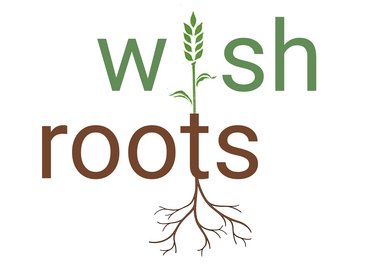WISH-ROOTS
| Start: | 01 April 2022 (External Call project) |
| Duration: | 36 |
| Aim: | Tuning the wheat root microbiome to improve soil health and optimize rhizosphere nitrogen cycling and availability |
| Contact: | Coordinator Prof. Tony Miller, John Innes Centre, United Kingdom |
Website: Twitter: Instagram: Linkedin; | https://www.wishroots-ejpsoil.net/ https://twitter.com/wish_roots |

Supporting and improving the fertility and health of agricultural soils is essential to the survival of humanity. The cultivation of wheat and associated agricultural practices such as application of nitrogen (N)-fertilizers impacts on nearly 220 million ha of agricultural soil globally. Therefore, the possibility of tuning the impact of wheat production on soil health will advance our efforts to develop more sustainable agricultural approaches, preserving and enhancing soil health.
To summarise, the main objective of the WISH-ROOTS project is to restore and and preserve soil health through wheat root traits. For this, we aim to: 1) identify key traits associated with functionality of microbial guilds in the rhizosphere and root system architectural traits; 2) find the genes, genomic regions or metabolic pathways in wheat that benefit soil health; 3) develop genetic tools for breeding to introduce these beneficial traits in commercial cultivars and 4) develop a predictive model for soil health. These aims will provide advantageous varieties for farmers that support a more sustainable use of land improving soil microbial biodiversity, nutrient cycling, and structure.
Project partners
Country | Organization |
Belgium | KU Leuven |
China | Institute of Genetics and Developmental Biology, Chinese Academy of Sicences |
Germany | Forschungszentrum Jülich / IBG-2 – Plant Sciences |
Italy | University of Bologna |
South Africa | Agricultural Research Council |
Spain | Biome Makers Inc. |
Call text
Supporting and improving the fertility and health of agricultural soils is essential to the survival of humanity. The cultivation of wheat and associated agricultural practices such as application of nitrogen (N)-fertilizers impacts on nearly 220 million ha of agricultural soil globally. Therefore, the possibility of tuning the impact of wheat production on soil health will advance our efforts to develop more sustainable agricultural approaches, preserving and enhancing soil health.
Wheat root traits linked to their architecture and the release of exudates shape the soil and microbiome environment. This impacts on soil properties and microbiome functions related to biodiversity, soil structure and provision of essential nutrients to crops, key aspects of soil health.
Modern wheat varieties are the result of intensive breeding for above ground traits (e.g. yield) with little attention paid to their impact on root traits and on soil processes. This deficiency has created an urgent need to identify below ground traits that can support and improve soil health and key ecosystem functions such as nutrient cycling and provision of food.
Soil health strongly depends on soil-microbe-plant interactions. In agricultural soils dedicated to wheat production, crop control of microbial N cycling has the potential to play a crucial role in providing more sustainable farming that requires lower inputs of chemical fertilizer. A focus on breeding crops that can improve soil health, thus maintaining an optimized balance of N species available for plant uptake, has not been a target for breeders despite the benefits that can be reaped.
Strategies to optimize the management of N fertilization and reduce N losses to the environment can significantly contribute to UN Strategic Development Goals (SDGs) dealing with more sustainable use of ecosystems and halting and reversing land degradation and biodiversity loss (SDG15) as well as providing responsible production (SDG12) and global warming mitigation (SDG13).
The WISH-ROOTS project brings together partners with complementary expertise and resources working at the root/soil interface to identify key wheat root traits that can improve soil health. The project builds on preliminary data showing:
● novel quantitative trait loci (QTL) in the wheat genome that are significantly linked to relative abundance of microbial guilds and functions associated with N cycling at the scale of the full rhizosphere microbiome
● novel QTLs for root traits linked to adaptation of N uptake under different nutrient supply regimes
The WISH-ROOT project will use the following measurements as indicators of soil health and as phenotyping tools for established populations of wheat in field experiments or field soil mesocosms:
● metagenomics analysis of microbial guilds and functionsrelated to N cycling in rhizosphere soil
● advanced phenotyping techniques to measure root traits linked to release of plant exudates and N uptake
● soil N supply as an indicator of health and demonstrated by optimized crop provision
Beneficial root traits identified across collections of bread and durum wheat will be assessed under high and low N fertilizer regimes to optimize the combined effect of root traits with environmental conditions.
To summarise, the main objective of the WISH-ROOTS project is to restore and and preserve soil health through wheat root traits. For this, we aim to: 1) identify key traits associated with functionality of microbial guilds in the rhizosphere and root system architectural traits; 2) find the genes, genomic regions or metabolic pathways in wheat that benefit soil health; 3) develop genetic tools for breeding to introduce these beneficial traits in commercial cultivars and 4) develop a predictive model for soil health. These aims will provide advantageous varieties for farmers that support a more sustainable use of land improving soil microbial biodiversity, nutrient cycling, and structure.